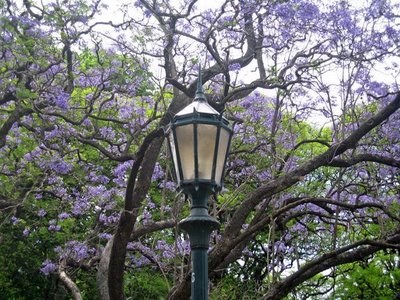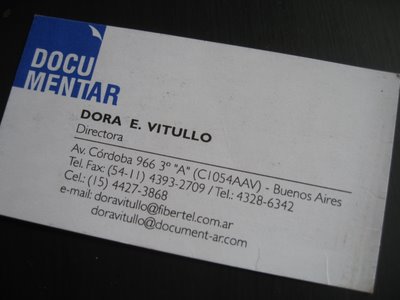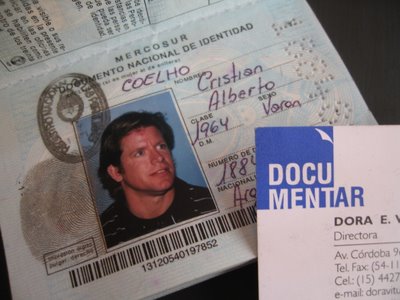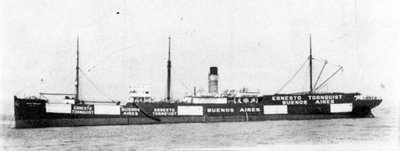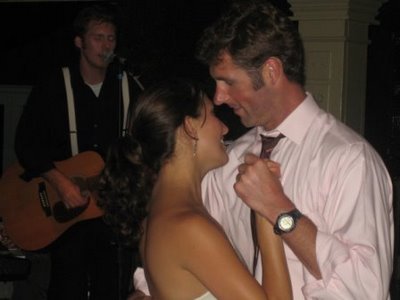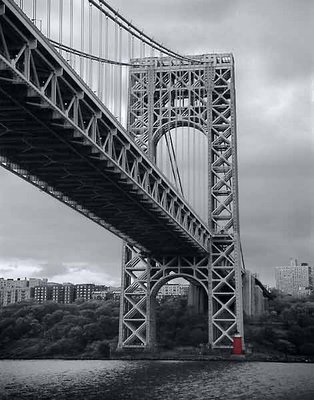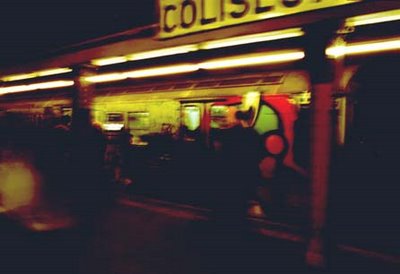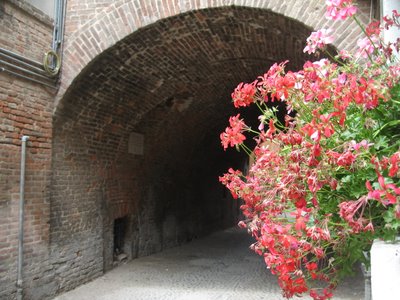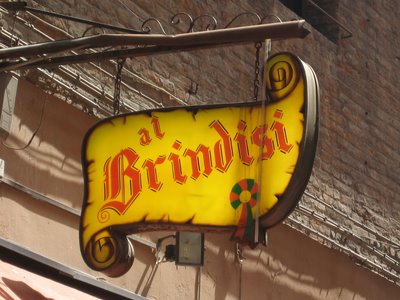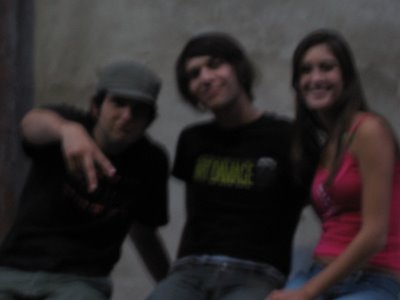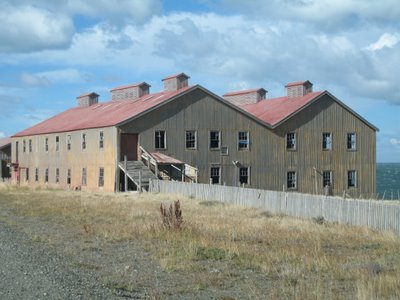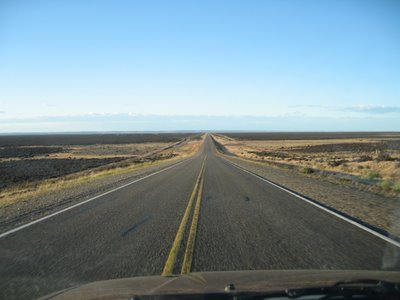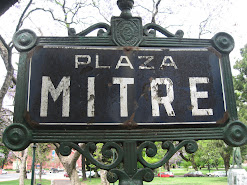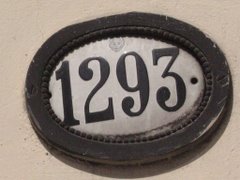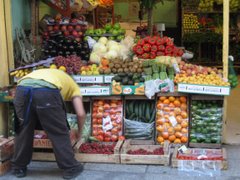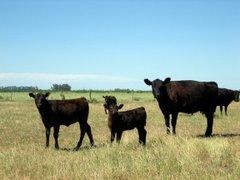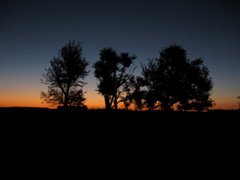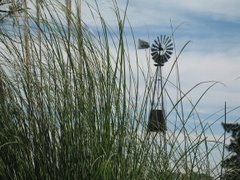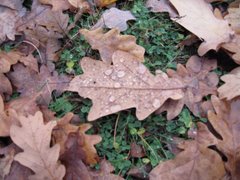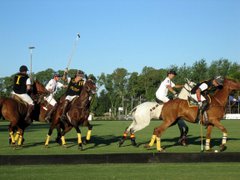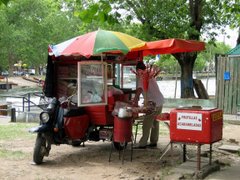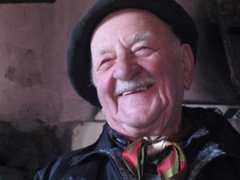
Arriving in the area near the tiny town of La Rica last weekend, our little band of city slickers adapted quickly to silly love songs, silent cell phones, and a missing bag of toiletries (left on a sidewalk in Buenos Aires). But finding our destination - the estancia also named La Rica - became an insurmountable task.
The one among us who had been there more than a few times tried to blame in turn: the written directions, the weather, and the rental car. But half an hour later we were in the same general spot on the wrong side of the highway with the volkswagen threatening to bog down on dirt roads left muddy by overnight rain. Progress was slow. The women enjoyed a moment of amusement when the men, overcome by a sense of inadequacy, devised and executed a brilliant diversionary tactic: we got out and walked. The women simply drove on a bit before stopping to capture the futile mutiny on camera. Before long the guys were slumped back in the vehicle wondering how soon we could be retested for emotional intelligence.
In town the butcher gave us new directions that were just too easy. Our fearless driver preferred to be more creative. This didn't work and soon the old and new instructions blurred together and we were on our way to another part of Argentina.
Turn left at the new silos. Turn right where the power line crosses the road. Continue to the end of town. There is only one street in town. The end of town is just there in front of you. Cross the train tracks to nowhere. Follow the bend in the road. Go straight. Yes, straight as in do not turn left, right or back up. Look for the old pigeon tower near the road. Turn in through the gate.

After a while we doubled back to town and soon all the villagers were watching in amusement as we drove back and forth, back and forth, never getting closer to the estancia, but happily snapping digital photos along the way.
Finally arriving at the entrance, we saw that it had all been worthwhile. A wide green lane leads to the long main house on the right and a carriage galpon on the left. Through the gated entrance the rooms along the gallery look out onto an old well in the garden. In the leafy park hundreds of singing birds made the place feel like a rain forest. The prior evening's storm had blown branches and leaves into the swimming pool and the mosquitos were more eaily avoided on the other side of the house. So we enjoyed a picnic and a bottle of white wine on a bench next to an ancient canon.

La Rica was built in that later part of the 19th century. Half country estate and half fortress, it was originally a 18,000 hectarea ranch that operated as a completely self-contained village. For each sheep sheered, workers were paid with copper coins that were accepted at the only store for miles around: the one on the estancia run by the big boss, Manuel Estaquio Lopez.
In the late 19th century European pioneers building immense estancias on the expanse of pampas west of Buenos Aires had to keep a twitchy eye fixed on the horizon. A storm cloud or a cloud of dust could mean big trouble. There wasn't much that could be done to stop a tornado, but the indigenous population, however unhappy about being displaced from their land, could be rebuffed. Did the natives occasionally make off with supplies or a female resident? Probably. But in the end they didn't have an answer for old Mr. Canon.
While the ladies were well protected during raids, the ranchers should have been more worried when the dominator came to town. These were gauchos with special talents, a lost breed of horse breakers who journeyed tirelessly from estancia to estancia, stopping only to earn their living in the corrals. In the hot afternoon everybody stopped to watch him skillfully tame a wild stallion, and after dinner all gathered around the fire to hear his stories. At night he sometimes chose not to sleep out under the stars.
The modern day travelers wrapped up lunch and were soon headed for El Recuerdo, the nearby house in which we would spend the night. But first we stopped back in town, again, to buy meat from our friend the butcher. We arrived at the wonderful house with no difficulty.

In the evening, out there on the pampas, we prepared a barbeque and a vegetarian meal and ate it under a full moon. For urbanites enjoying a (brief) little-house-on-the-prairie moment, there were reminders of life in the Laura Ingalls days. A hot shower still required a wood fire in the furnace. Rain meant the road needed time to dry out before you could go anywhere. To cook outside you still had to consider which way the wind was blowing. And at night beatles and bugs got in the kitchen sink if you left the door open. But Michael Landon never appeared with his violin, so we deployed a small armada of iPods and portable speakers and Merel led us in a sing-along around the campfire well into the night.
The next morning was sunny and clear and we talked over breakfast on the peaceful porch. Later my aunt and uncle joined us for an asado lunch, having already heard the story of our eventful visit to town. In the afternoon we were given a tour of the herds of healthy cows and beautiful horses, many of which live out there for years, eating the prarie grasses and clover. Seeing an armadillo run by, my uncle told us that the only way to get one out of its hole is to stick a finger in its ass. Nobody knew how to get President Bush's head out of his.
Finally we said goodbye and headed back to BA.
In the city people were enjoying a picture perfect Sunday afternoon. We dropped Merel off in Recoleta and I dropped Julieta and Gunnar in Belgrano. Near my neighborhood, Libertador was jammed with end-of-weekend traffic. I found Julieta's bag of toiletries waiting downstairs in the lobby.
Back in my apartment I was dazed by an email from an American friend telling me that she had flown to Puerto Rico for the weekend because she "needed miles to make status for next year." Another complained bitterly that United wanted to deduct 100,000 miles for a free ticket to Buens Aires. And Wells Fargo, the bank of the wild west, had sent a message announcing important new legal notifications. I turned off the computer and went out on the balcony. I didn't want to think about Puerto Rico or El Big Rico. I wanted to think about good friends and La Rica and the time we had had there.


Credits: Merel: Photography Julieta: Driving Augusto and Maria: Hospitality

